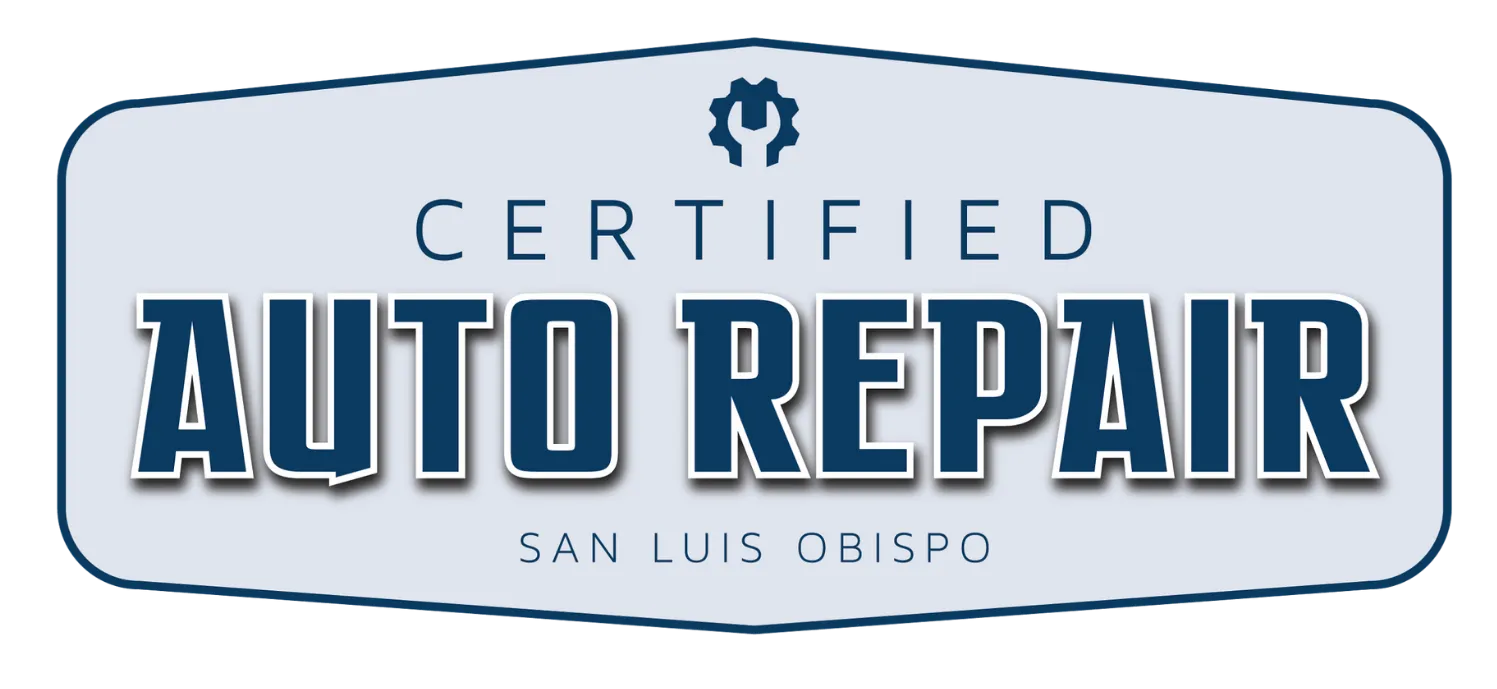
We’ve all been feeling the pain at the gas pump lately, and prices don’t seem to be going down anytime soon. So, you might be thinking of ways to save money on gas – and a big factor in that is improving your car’s fuel efficiency.
Car maintenance can make a big difference. If a vehicle is well cared for, it runs cleaner and more efficiently, improving your miles per gallon. To help our customers deal with high gas prices, Certified Auto Repair in SLO is offering a complementary fuel efficiency inspection. Keep reading for tips on how you can improve your car’s fuel efficiency, from the master San Luis Obispo mechanics at Certified Auto Repair.
Regular tune ups make a car more efficient
Car tune-ups are designed to improve your vehicle’s efficiency and also diagnose unknown problems that could also affect your car’s gas mileage.
Your car’s engine is the heart of the system, and keeps many of the other parts working well. If a problem exists within the engine compartment, it can bring down efficiencies throughout the system. The Department of Energy has stated that when a car fails an emissions test, repairing it can improve performance anywhere from 4 to 40 percent.
Balance, rotate, and inflate your tires
The tires help connect you to the road, and provide proper support as you drive along. If they aren’t doing their job effectively, you’ll see the evidence in multiple ways.
It starts with ensuring they are properly inflated. Under-inflating them will decrease the surface area that connects with the road. Too much tire pressure, and you increase the strain, increasing the chance that they might blow.
Because your tires move and change regularly, it’s a good idea to have them rotated and balanced to keep them in their best condition. Manufacturers recommend balancing and rotating every 3,000 to 6,000 miles, or whenever you notice a problem. Balance issues often result in a vibration in your steering wheel, seat, or floor. This is a good time to pull in and ensure everything is working well.
Change the motor oil
When it comes to changing your car’s oil, stick with a regular schedule. The general rule is 3 months or 3,000 miles, whichever comes first. Today’s cars are more efficient than ever, with many manufacturers increasing recommendations. Check with your owner’s manual for what’s best for your vehicle.
As motor oil ages, it gets thicker and decreases the overall efficiency inside the engine. It can cause more friction, which in turn creates more heat. With increased heat comes a higher burn level, which means more fuel is burned with every turn of the engine.
Be sure to use the correct oil made for your car. If you stick with the recommended grade, you may boost fuel efficiency by as much as two percent.
Clean out the air filter
When you get an oil change, clean or change out the air filter too. It’s a component that helps eliminate pollutants that may otherwise damage your engine. A dirty air filter doesn’t have the ability to filter out particles that can cause damage inside the system.
Change out the spark plugs
Spark plugs help ignite the fuel as it moves into the engine. If they stop working or misfire, you’ll lose out on efficiency. Most manufacturers recommend replacing them about every 30,000 miles.
Slow down
Americans have an addiction to speed. And while that may be a huge safety concern, it also impacts fuel efficiency.
Up to about 60 miles per hour, your vehicle will generally burn less fuel as it picks up speed. However, after 50 miles per hour, the drag starts to require more fuel to keep the vehicle moving. Studies show this can be as high as 25 cents a gallon for every 5 miles per hour you increase. If you drive a lot of highway miles, the savings from slowing down can add up over time.
How can you improve fuel efficiency?
One of the easiest ways to keep your car in top condition is to rely on the San Luis Obispo auto repair experts at Certified Auto Repair for an inspection on a regular basis.
This will keep your car operating well and improve your gas mileage.
